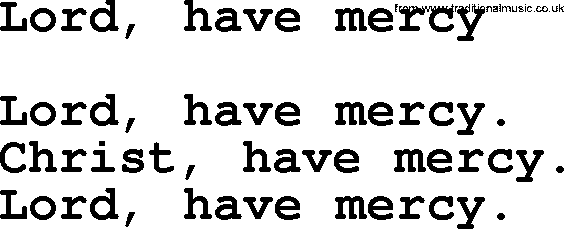
Last devotion we meditated on how the blind man laid the foundation for his faith in the objective truth that Jesus is the Son of David, the Messiah. The objective aspect of faith is the foundation for subjective faith.
Both are essential, of course. A purely objective faith the demons have, St. James tells us, and they shudder as a result. Many Christians may have that faith as well. They objectively know Jesus is Lord, but don’t believe He’s Lord “for them.” So they shudder too.
A purely subjective faith, by contrast, can slip into idolatry. How so? Because the reference is all the self – what I think; what I feel; what I’m willing – any reference about Jesus simply becomes projection. “I feel Jesus would tolerate gay marriage, because wasn’t he all about love and tolerance?” Well, no. What you’re doing is projecting your own values and naming them “Jesus” so as to deceive yourself that what you believe is something more than solipsism. Your “Jesus” has become your idol. This indeed is the Antichrist, a replacement Christ.
So the faith of demons or the faith of Antichrist are the two sides we must avoid as we contemplate faith.
What then was the subjective faith of the blind man? It was pretty simple: “Have mercy on me!” Yes, that’s subjective! “Lord, I know objectively you are the Messiah, the Son of God, my Lord. Now, please, I beg you, use your authority to heal me, for I have no power to do so myself, beggar that I am.”
“Have mercy on me!” of course is the Kyrie, the prayer of the liturgy that goes, “Lord, have mercy on us.” The ecclesiastical version is beautifully rendered with the more communal “us” rather than “me.” The liturgy is very much like the four friends carrying the lame man to Jesus, and Jesus saw “their” faith and healed him. The liturgy is all of us carrying each other to Jesus, so that again Jesus might see “our” faith and heal us. It’s a communal thing like the Our Father is a communal prayer.
An essential component of faith is taught in that the blind man didn’t give up. When others tried to keep him quiet, he cried out all the more. Faith without patient endurance is not faith. Faith cries out until answered. The Church prayers her Kyrie until Christ’s return.
In fact, the Kyrie is a prayer woven throughout the entire liturgy. It begins as a “stand alone” prayer, the Kyrie. But it’s also in the Gloria in Excelsis, almost as if the Gloria in Excelsis shows how the Lord will answer our prayer. It comes up again in the Agnus Dei, prior to receiving communion.
Why so many times? Well, ask the blind beggar. When you’re a beggar and you objectively know someone else can relieve your distress, you don’t give up. That would be a loss of hope. So, even when others were trying to silence him, he just cried out louder.
Who or what is trying to silence you? Perhaps the accuser dormant in your own soul. Perhaps the judging stares of others. Perhaps a pop culture mocking your faith in “unicorns.” Perhaps nagging doubts. Whatever it is, are you a beggar or not who knows objectively that Jesus is the risen Lord? The answer is, “yes” and “yes.” So don’t stop praying. You will be answered.